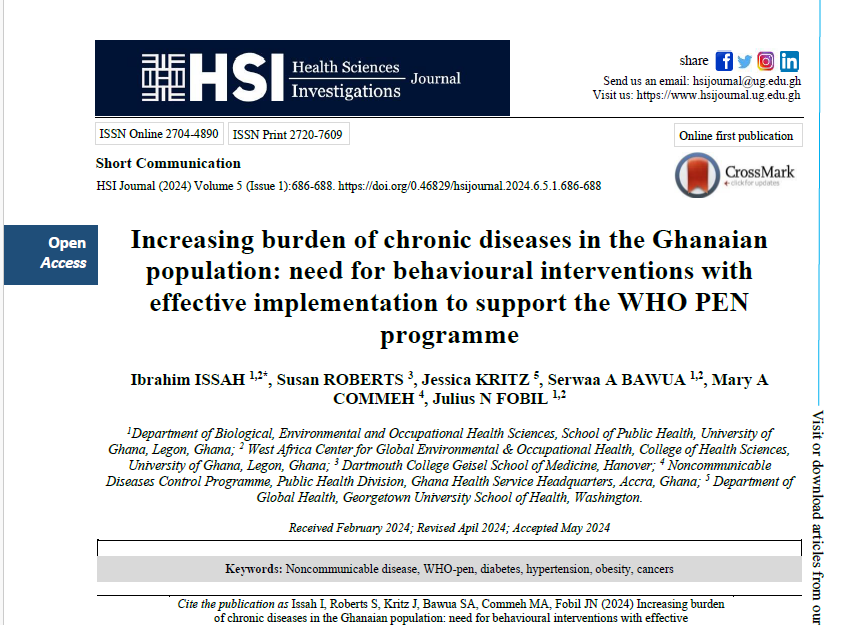Increasing Burden of Chronic Diseases in the Ghanaian Population: Need for Behavioral Inteventions with Effective Implementation to support the WHO PEN program
Increasing burden of chronic diseases in the Ghanaian population
Abstract
Approximately 74% of global deaths are caused by noncommunicable diseases (NCDs), including cardiovascular diseases, diabetes, cancer, chronic respiratory illnesses, and mental health disorders [1]. Sub- Saharan Africa (SSA) historically had low rates of NCDs but is now experiencing a more rapid increase in deaths from NCDs than anywhere else in the world [2]. In Ghana, NCDs contributed to 43% of all deaths in the latest survey, with cardiovascular diseases being the most common condition [3-6]. Other NCDs of growing concern in Ghana include diabetes mellitus [7], chronic kidney diseases (CKDs) [8], and cancers [9]. NCDs are increasingly
burdening health care services, which were already challenged with other ailments common to low- and middle-income countries, including child undernutrition and infectious diseases.


